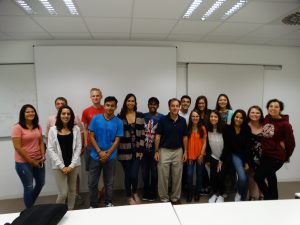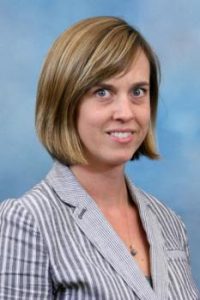Summer Law Studies in Germany with MU Law
 Just one week remains in the 8th Annual Summer Session in International and Comparative Law taking place in Giessen, Germany. In the photo you can see me with some of my students in the Comparative Constitutional Law class. It is a great group, mixing U.S. students from Marquette and the University of Wisconsin Law Schools (and one attendee from Touro Law School in New York) with students from Brazil, Italy, India, Russia and Georgia. We had fun comparing the constitutions of our home countries and talking about the ways that the preambles of the various constitutions reflected similar yet different values. For example, India’s Constitution is adamant that the national government is secular in nature — reflecting that countries enormous diversity of religious faiths and unfortunate history of religious strife. Meanwhile, Russia’s Constitution is clear that the union of nations into one country is permanent unless unanimously dissolved, in a way that reminds me of Abraham Lincoln’s view of the United States.
Just one week remains in the 8th Annual Summer Session in International and Comparative Law taking place in Giessen, Germany. In the photo you can see me with some of my students in the Comparative Constitutional Law class. It is a great group, mixing U.S. students from Marquette and the University of Wisconsin Law Schools (and one attendee from Touro Law School in New York) with students from Brazil, Italy, India, Russia and Georgia. We had fun comparing the constitutions of our home countries and talking about the ways that the preambles of the various constitutions reflected similar yet different values. For example, India’s Constitution is adamant that the national government is secular in nature — reflecting that countries enormous diversity of religious faiths and unfortunate history of religious strife. Meanwhile, Russia’s Constitution is clear that the union of nations into one country is permanent unless unanimously dissolved, in a way that reminds me of Abraham Lincoln’s view of the United States.
After two weeks with me and Professor Thilo Marauhn from Justus Liebig University Law School, discussing and comparing topics related to constitutional structure, we turned the class over to Professor Heinz Klug of the University of Wisconsin and Professor Ignaz Stegmiller from Justus Liebig University Law School. They focused on comparing civil rights and liberties under various constitutional systems. All in all, a very thought-provoking course.


